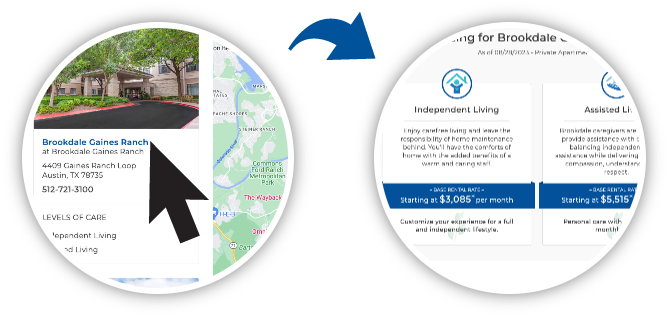September 2, 2021
Five Tips to Help Ease Care Transitions for People With Dementia
Unfortunately, Juanita’s story is quite common. The Alzheimer’s Association reports that people living with dementia are more likely to have other chronic conditions, such as heart disease, diabetes and kidney disease. They are also more likely to experience potentially avoidable hospitalizations for their chronic conditions. Older people living with dementia have nearly twice as many hospital stays per year as other older people.
To help improve care transitions and outcomes for people living with dementia like Juanita, the Alzheimer’s Association released guidelines in 2018: Dementia Care Practice Recommendations. Developed by 27 dementia care experts and based on a comprehensive review of current evidence, best practice, and expert opinion, the guidelines include recommendations that help define quality care across all care settings and throughout the disease course. The guidelines are intended for professional care providers who work with individuals living with dementia and their families in long-term and community-based care settings. Still, families can also use these recommendations to continue to advocate for and help improve person-centered care during transitions.
Transitions in care for persons living with dementia include “movement across settings and between providers increasing the risk for fragmented care and experiencing poor outcomes such as hospital-acquired complications and excess health care expenditures,” according to the Alzheimer’s Association report.
Here are examples of common transitions for a person living with dementia:
- From home to a hospital or skilled nursing facility
- From home to an emergency department
- From an emergency department to an intensive care unit
- From one team of clinicians or care providers to another
Tips for Easing the Transition
Because people living with dementia are at a greater risk for complications and breakdowns in care, the Alzheimer’s Association makes five specific recommendations to help make coordination of services and care transitions easier for people living with dementia before, during and after care transitions:
- Ask questions. Your care provider should help prepare and educate you and your family about typical transitions in care. Communication should take place before, during and after transitions. Care providers should take the time to answer your questions, clarify each care setting, and explain different options to help give you peace of mind.
- Stay in the loop. Expect timely and open communication of information between, across and within settings. Often, people are transferred to and from clinical settings without essential information. Make sure your care team is sharing medical information to make transitions more manageable and to avoid issues like unnecessary emergency department visits and medication errors.
- Continue to participate and share your treatment preferences and goals. After any hospitalization or other significant change requiring a transition in care or level of care, your healthcare team should review and reassess your treatment preferences, advance directives and include an assessment of safety, health needs, and your caregiver’s ability to manage your needs.
- Surround yourself with a strong collaborative care team to assist you and your family with transitions. Your team should be comfortable addressing the unique challenges for individuals living with dementia and other complex chronic conditions, as well as the needs of your family.
- Encourage your care team to use evidence-based models to plan care transitions. The seven evidence-based models of care in the Dementia Care Practice Recommendations have been shown to help avoid unnecessary transitions. These models focus on preventing unnecessary transitions such as hospitalizations or emergency department visits and supporting placement in residential care settings such as nursing homes or assisted living communities, as needed.
How do you put these tips to work?
One of the most valuable tools you can use to apply the recommendations from the Alzheimer’s Association is a thoughtful and up-to-date transition plan. This plan is especially important if the person living with dementia has a lower stress threshold or is very attached to the presence of a particular caregiver or family member. A good transition plan can make adjustments to new settings more comfortable, and it should include specific person-centered information about regular routines and comfort levels with tasks like dining, bathing, need for privacy and comfort with touch and affection.
The transition plan should also meet the person living with dementia at their point of need, needs that will vary depending on their level of dementia. Most importantly, you and your family should stay involved and engaged. Having a family member close by during transitions will offer reassurance, comfort and consistency. At Brookdale, we value the relationships and partnerships we build with our residents living with dementia and their families. As part of your care team, we can help improve the coordination of services and care transitions with our person-centered approach and the application of evidence-based care models.
- Alzheimer's & Dementia
- Caregiver's Corner
- COVID-19
- Health, Safety and Wellness
- Financial Well-Being
- Passion & Purpose
- The Journey to Senior Living
- Trending Now
- Socialization & Relationships
- Brookdale Solutions
- Brookdale Vision and Growth
- October 2025
- September 2025
- August 2025
- July 2025
- June 2025
- May 2025
- April 2025
- March 2025
- February 2025
- January 2025
- December 2024
- November 2024
X
Let us help find the right community for you!



